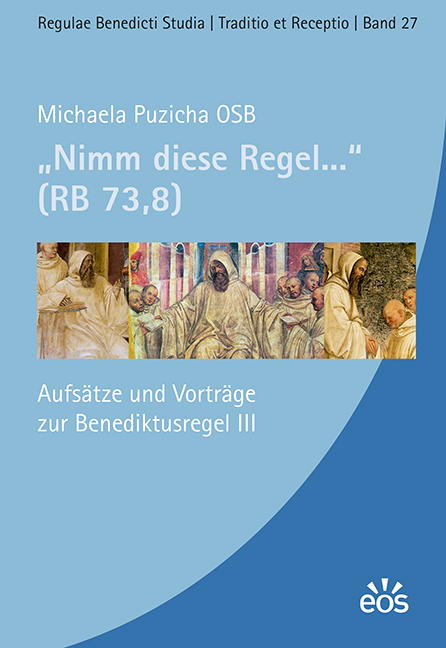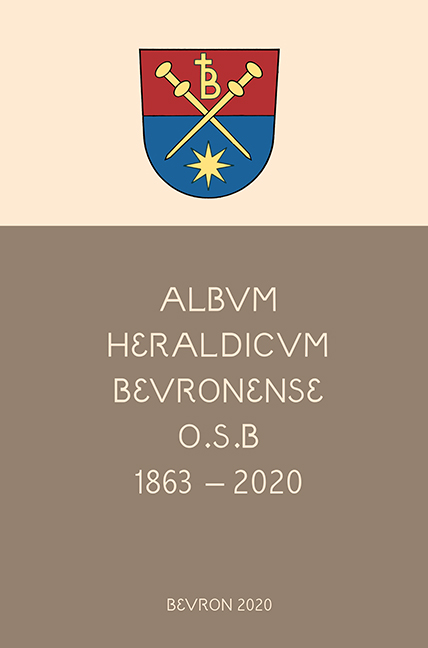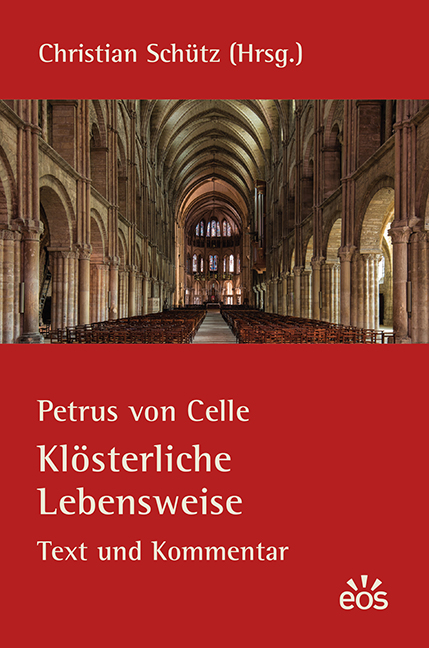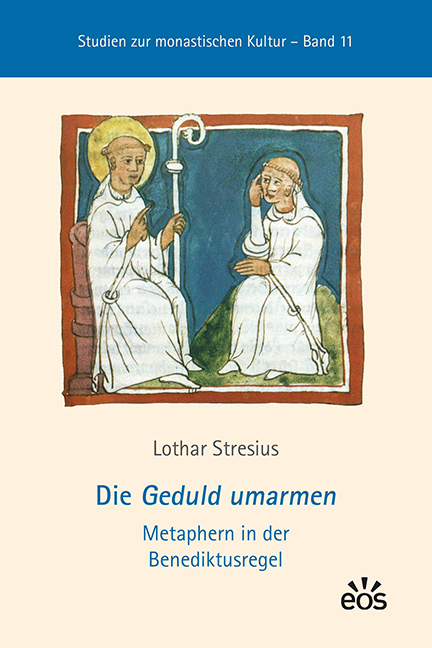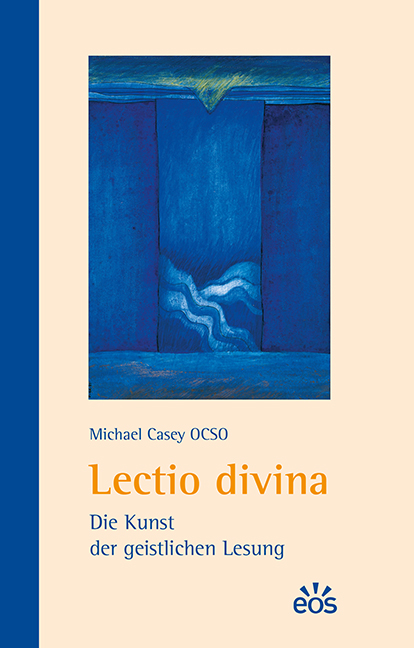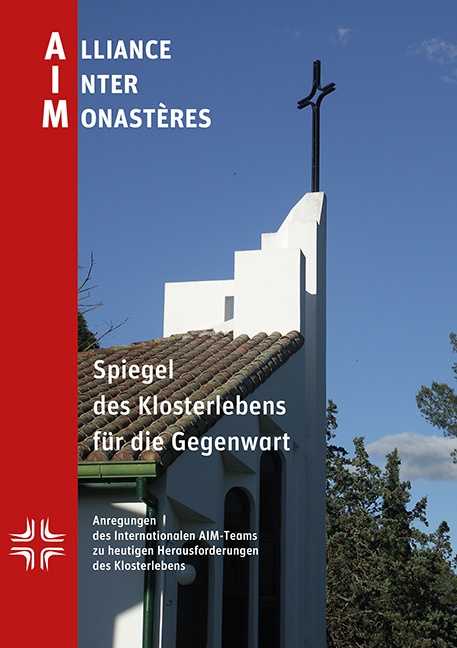Monastic Tradition
Mönchtum der Zukunft
Interviews zum Ordensleben
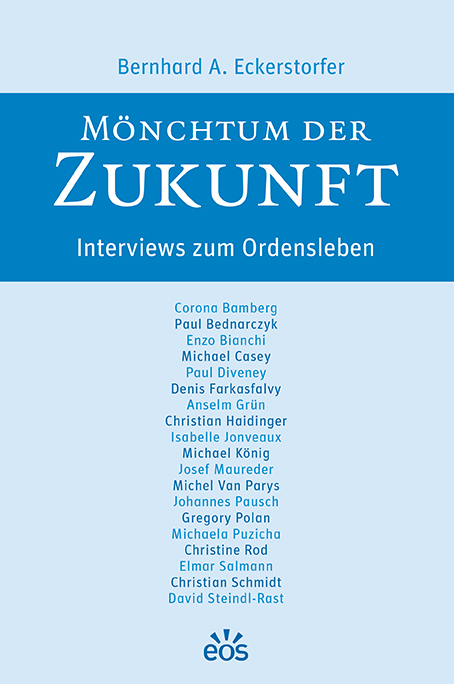 | Über zehn Jahre hinweg führte Pater Bernhard Eckerstorfer Gespräche mit Ordensleuten und spirituell sensiblen Menschen. Daraus entstanden anregende und spannend zu lesende Dialoge mit vielen unerwarteten Einsichten in authentischer Sprache. Neben den persönlichen geistlichen Zugängen dreht sich der Austausch immer auch um Ordensleben heute: Wie kann es überzeugend in die Gegenwart übersetzt werden? Wo liegen die Wurzeln des Ordenslebens? Gibt es hier überhaupt „Rezepte“? Wo liegt die Gefahr pseudoasketischer Tendenzen? Wie können Selbstverantwortung und Reifung gefördert werden? Worin liegt die Provokation des Ordenslebens? Interviews mit Corona Bamberg, Paul Bednarczyk, Enzo Bianchi, Michael Casey, Paul Diveney, Denis Farkasfalvy, Anselm Grün, Christian Haidinger, Isabelle Jonveaux, Michael König, Josef Maureder, Michel Van Parys, Johannes Pausch, Gregory Polan, Michaela Puzicha, Christine Rod, Elmar Salmann, Christian Schmidt, David Steindl-Rast Interview mit Pater Bernhard Eckerstorfer beim ORF.  |
Album heraldicum Beuronense O.S.B. 1863 – 2020
Petrus von Celle: Klösterliche Lebensweise
Text und Kommentar
11
Stresius, LotharDie Geduld umarmen
Metaphern in der Benediktusregel
Lectio divina
Die Kunst der geistlichen Lesung
20
Trianni (ed.), Paolo • Sawicki OSB (ed.), Bernard • Quartier OSB (ed.), Thomas • Jonveaux (ed.), IsabelleMonasticism and Economy: Rediscovering an Approach to Work and Poverty
Acts of the Fourth International Symposium, Rome, June 7-10, 2016
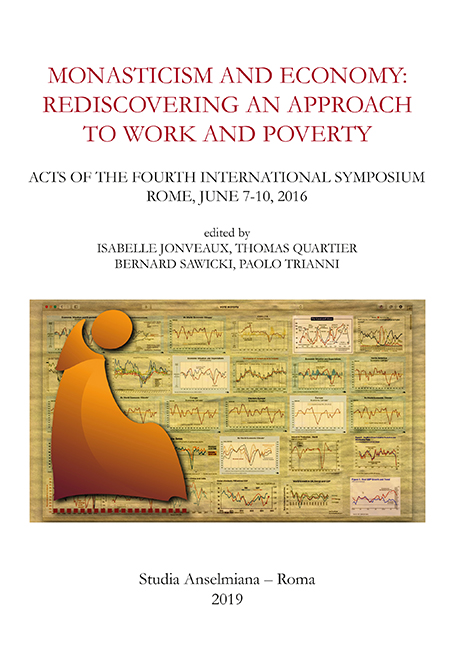 Cover-Download | Recent decades, in the context of a global and highly developed economy, seem to come back to the monastic ethos of economy. The Rule of S. Benedict and the history of monasticism have proved to be an excellent inspiration for people in business. Many monasteries actively and creatively participate, not only in local economic projects – as important tourist and cultural centres – but also as important employers. Monastic gastronomy and, usually organic, food products have become a base for a special culture for a modern, sobre and frugal style of being and welfare. The sharing economy and collaborative consumption seem to be an amazing application of monastic style in the practices of modern Western society. In this sense monasticism is really contributing to an understanding of economy as an ecologically friendly form of human brotherhood.  |
Spiegel des Klosterlebens für die Gegenwart
AIM-Sondernummer
179
Trianni (ed.), Paolo • Sawicki OSB (ed.), Bernard • Quartier OSB (ed.), Thomas • Jonveaux (ed.), IsabelleMonasticism and Economy: Rediscovering an Approach to Work and Poverty
Acts of the Fourth International Symposium, Rome, June 7-10, 2016
 Cover-Download | Recent decades, in the context of a global and highly developed economy, seem to come back to the monastic ethos of economy. The Rule of S. Benedict and the history of monasticism have proved to be an excellent inspiration for people in business. Many monasteries actively and creatively participate, not only in local economic projects – as important tourist and cultural centres – but also as important employers. Monastic gastronomy and, usually organic, food products have become a base for a special culture for a modern, sobre and frugal style of being and welfare. The sharing economy and collaborative consumption seem to be an amazing application of monastic style in the practices of modern Western society. In this sense monasticism is really contributing to an understanding of economy as an ecologically friendly form of human brotherhood.  |
Benedikt für jeden Tag
Ein Jahreskommentar zur Benediktusregel
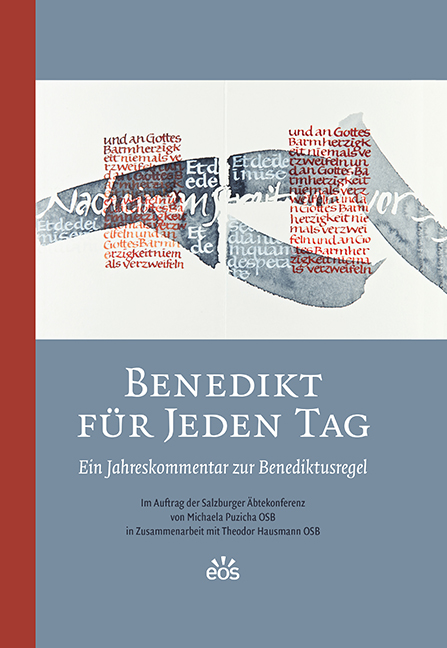 Cover-Download | „Diese Regel soll nach unserem Willen in der Gemeinschaft oft vorgelesen werden“ (RB 66,8). Entsprechend dieser Weisung der Benediktusregel wird in den Klöstern der benediktinischen Familien seit Jahrhunderten die Regel jährlich mehrmals verlesen und ihre Worte haben die monastische Tradition tief geprägt. Da der Regeltext einer vergangenen Epoche angehört, der Spätantike des 6. Jahrhunderts, sind viele Weisungen für heutige Leser auslegungsbedürftig. Das hier vorgelegte Jahreslesebuch verteilt die Regelabschnitte entsprechend der klösterlichen Leseordnung auf ein Jahr und kombiniert sie mit gut verständlichen Hinführungen. So kann der Leser die Fülle der darin enthaltenen Aussagen mit ihren Verweisen auf die biblische, monastische und patristische Tradition schrittweise für sich erschließen und die Weisheit der Regel neu entdecken.  |


